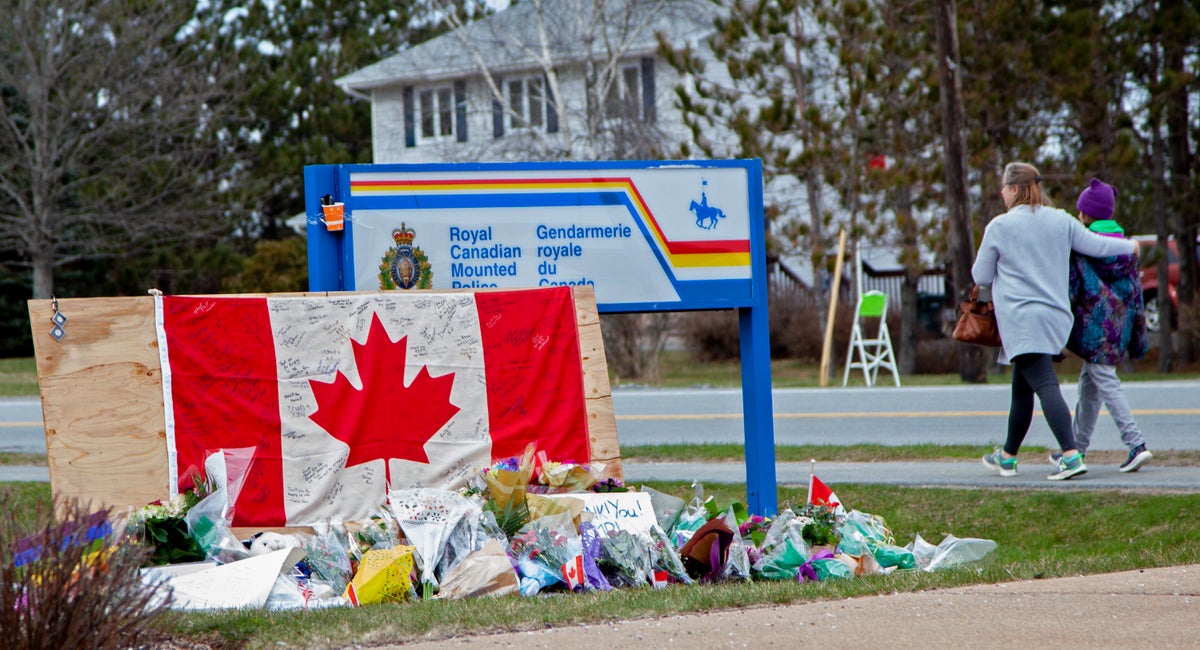
Canada would implement a “national freeze” on handgun ownership and force owners of “military-style assault weapons” to sell their guns to the government under newly-introduced legislation, prime minister Justin Trudeau has announced.
“As a government, as a society, we have a responsibility to act to prevent more tragedies,” Mr Trudeau said.
The proposals, which are expected to pass, come in the wake of last week’s deadly mass school shooting in Uvalde, Texas, that killed 21 people, and a 2020 tragedy in rural Nova Scotia in which 22 people died in Canada’s deadliest mass shooting.
The gun buyback plan is modelled on other successful efforts in the wake of national tragedies.
In 2019, New Zealand banned semi-automatic weapons and bought back guns following attacks on two mosques in Christchurch that killed 51 people.
Following a 1996 shooting in Port Arthur, Australia, the government collected more than 650,000 semi-automatic rifles and numerous shotguns after such weapons were banned.
Government purchases of guns could begin later this year.
Under the Canadian legislative proposals, people would also no longer be able to buy, sell, import, or transfer handguns, and those shown to have committed domestic violence or criminal harassment offences like stalking could have their gun licences taken away.
The bill, known as C-21, would also require long-gun magazines to be permanently altered to hold no more than five bullets.
“Other than using firearms for sport shooting and hunting, there is no reason anyone in Canada should need guns in their everyday lives,” the prime minister added on Monday.
Canada already has stricter gun laws than the US. The US has never engaged in a large-scale assault weapon buyback like other nations, but it did temporarily ban semi-automatic weapons, although the prohibition lapsed in 2004.
President Biden has said he believes he and Senate Republicans like minority leader Mitch McConnell and John Cornyn of Texas can come to a “rational” agreement on gun control legislation, although both men have strongly opposed past attempts at weapons control.
Previous attempts at gun control in Canada have come in for criticism. A past version of the buyback programme, where the surrender of weapons was voluntary, went unpassed in 2021 and was strongly criticised by gun-control groups for not going far enough.
“It was a total failure,” Heidi Rathjen, of PolyRemembers, a group of survivors of the 1989 École Polytechnique shooting, told The Globe and Mail, calling that attempt “an empty shell that was designed to do as little as possible and provide talking points to the politicians.”
Gun control has long been a priority of Mr Trudeau’s Liberal government, which has spent more than $920m since 2016 on efforts to restrict access.
In 2020, Canada banned more than 1,500 types of assault weapons, including the brand of rifle used in the 2017 Quebec City mosque shooting.
Earlier this month, it also introduced rules requiring businesses to keep detailed records of gun sales, check customer identities, and make sure they are licensed to carry weapons.
Critics have accused Mr Trudeau of bringing back a national long-gun registry that was ended by the previous Harper administration.







